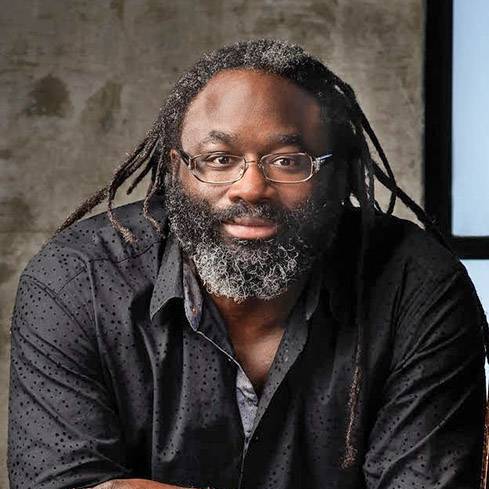Music
Distinguished Speaker Series
Join us for the Rudi E. Scheidt School of Music Distinguished Speaker Series, an exceptional lineup of engaging events featuring prominent individuals from academia, community organizations and the performing arts. This series offers a platform for thought-provoking discussions, insights, and inspiration, all aimed at fostering innovative ideas and strengthening our arts community.
SPRING 2024 SPEAKERS

Awadagin Pratt
March 1
Equity in the Arts

Aubrey Bergauer
February 21
Run It Like a Business: Strategies for Arts
Organizations to Increase Audiences, Remain Relevant, Multiply Money – Without Losing the Art
View the recording >>
"Run It Like A Business": For-Profit Ideas for a Post-Pandemic Nonprofit World
If you hate that phrase, you're not alone. But the arts are a business, a $763 billion sector whose 100,000+ organizations serve almost every county in the nation. Today, battered arts institutions are trying to reemerge from months of dark stages and galleries, rebound from one of the highest unemployment rates globally, and confront centuries of systemic discrimination. The solutions are right before our eyes, though. Volumes of data, research and case studies from the for-profit sector demonstrate how to achieve success across customer engagement, the user experience, company culture, the subscription economy, technology and media, new revenue streams, and brand relevance. Just because arts organizations are nonprofits doesn't mean we shouldn't make money; our revenue goes back to fund the mission. And it means a sustainable model is still necessary. Running arts organizations like a business isn't unwilling board speak; it's to revitalize this critical, massive economic engine and better serve the art and its consumers in the new normal ahead.
Hailed as "the Steve Jobs of classical music" (Observer) and "the Sheryl Sandberg of the symphony" (LA Review of Books), Aubrey Bergauer is known for her results-driven, customer-centric, data-obsessed pursuit of changing the narrative for the performing arts. A "dynamic administrator" with an "unquenchable drive for canny innovation" (San Francisco Chronicle), her leadership as Executive Director of the California Symphony propelled the organization to double the size of its audience and nearly quadruple the donor base.
In 2019, the side hustle became the main hustle as she moved her consulting practice full-time and has now served dozens of clients across artistic disciplines, geographies, and budgets up to $300M. Bergauer's ability to cast and communicate vision moves large teams forward. It brings stakeholders together across the institution, earning her "a reputation for coming up with great ideas and then realizing them" (San Francisco Classical Voice). Her drive to see opportunity in place of unsolvable challenges or irreversible trends produces different results than the norm, secures new revenue streams, and galvanizes audiences and donors. In addition, Bergauer builds strategic plans and organizations, leverages technology and new media to elevate and extend the brand, and prioritizes diversity and inclusion to create more robust products on stage and off.
A graduate of Rice University with degrees in Music Performance and Business, her work and leadership have been covered in national publications, including Entrepreneur, Thrive Global, Wall Street Journal, Southwest Airlines, and Symphony magazines, and she is a frequent public speaker, including TEDx, Adobe, and industry conferences inside and outside the arts.
Among his generation of concert artists, pianist Awadagin Pratt is acclaimed for his musical insight and intensely involving performances in recital and with symphony orchestras.
Born in Pittsburgh, Awadagin Pratt began studying piano at the age of six. Three years later, having moved to Normal, Illinois with his family, he also began studying violin. At the age of 16 he entered the University of Illinois where he studied piano, violin, and conducting. He subsequently enrolled at the Peabody Conservatory of Music where he became the first student in the school’s history to receive diplomas in three performance areas – piano, violin and conducting. In recognition of this achievement and for his work in classical music, Mr. Pratt received the Distinguished Alumni Award from Johns Hopkins and an honorary doctorate from Illinois Wesleyan University after delivering the commencement address in 2012.
In 1992, Mr. Pratt won the Naumburg International Piano Competition and was awarded an Avery Fisher Career Grant two years later. Since then, he has played numerous recitals throughout the US including performances at Lincoln Center, the Kennedy Center, Dorothy Chandler Pavilion in Los Angeles, Chicago’s Orchestra Hall and the NJ Performing Arts Center. His many orchestral performances include appearances with the New York Philharmonic, Minnesota Orchestra and the Pittsburgh, Atlanta, Baltimore, St. Louis, National, Detroit and New Jersey symphonies among many others. Summer festival engagements include appearances at Ravinia, Blossom, Wolftrap, Caramoor and Aspen and the Hollywood Bowl. Mr. Pratt has toured Japan four times internationally and performed in Germany, Italy, Switzerland, Poland, Israel, Columbia and South Africa.
Recent and upcoming appearances include recital engagements in Baltimore, La Jolla, Los Angeles, Pittsburgh, Ravinia, Lewes, Delaware, Duke University and at Carnegie Hall for the Naumburg Foundation; as well as appearances with the orchestras of Cincinnati, Indianapolis, North Carolina, Utah, Richmond, Grand Rapids, Memphis, Fresno, Winston-Salem, New Mexico, Rockford, IL and Springfield, OH. He also serves on the faculty of the Eastern Music Festival in Greensboro, North Carolina where he coaches chamber music, teaches individual pianists and performs chamber music and concertos with the festival orchestra.
Also an experienced conductor, Mr. Pratt has conducted programs with the Toledo, New Mexico, Vancouver WA, Winston-Salem, Santa Fe and Prince George County symphonies, the Northwest Sinfonietta, the Concertante di Chicago and several orchestras in Japan.
A great favorite on college and university performing arts series and a strong advocate of music education, Awadagin Pratt participates in numerous residency and outreach activities wherever he appears; these activities may include master classes, children’s recitals, play/talk demonstrations and question/answer sessions for students of all ages. He is also frequently invited to participate on international competition juries, such as the Rubinstein International Piano Master Competition in Israel, the Cleveland International Piano Competition, Minnesota e-Competition, the Unisa International Piano Competition in International Competition for Young Pianists in Memory of Vladimir Horowitz in the Ukraine.
In November 2009, Mr. Pratt was one of four artists selected to perform at a classical music event at the White House that included student workshops hosted by the First Lady, Michelle Obama, and performing in concert for guests including President Obama. He has performed two other times at the White House, both at the invitation of President and Mrs. Clinton.
Mr. Pratt’s recordings for Angel/EMI include A Long Way From Normal, an all-Beethoven Sonata CD, Live From South Africa, Transformations and an all Bach disc with the St. Lawrence String Quartet. His most recent recordings are the Brahms Sonatas for Cello and Piano with Zuill Bailey for Telarc and a recording of the music of Judith Lang Zaimont with the Harlem Quartet for Navona Records.
Mr. Pratt is a Professor of Piano at the College-Conservatory of Music at the University of Cincinnati. He also served as the Artistic Director of the World Piano Competition in Cincinnati and is currently the Artistic Director of the Art of the Piano Festival at CCM.
